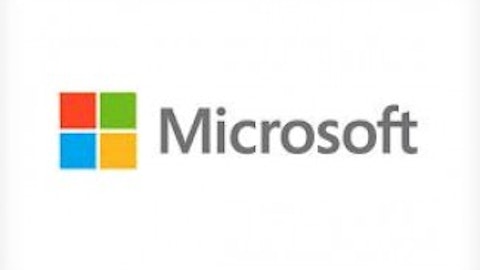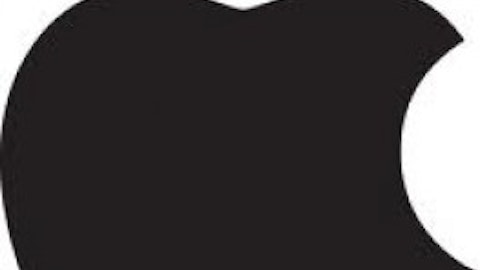We live in a world full of ironies. In this article, I will present you with one of these situations. While Google Inc (NASDAQ:GOOG) boasts about dominance of its Android operating system and Microsoft Corporation (NASDAQ:MSFT)’s Windows Phone is still in its infancy, in about one year, we will see an interesting trend where Microsoft’s revenue from Windows Phone may be higher than Google’s revenue from Android. As unbelievable as it sounds, it is most likely true.
So what’s the deal here?
Google Inc (NASDAQ:GOOG) offers its Android operating systems to manufacturers for free when they agree to use Google’s homegrown tools and applications with it. Google hopes to make money from Android phones through its search engine and related advertisements.
It is well-established that Samsung makes 95% of the money to be made in Android. Android enjoys a huge market share in the world’s smartphone market. The operating system’s global market share is estimated to be around 75%; whereas, Windows Phone’s market share is around 3% to 4% depending on which estimate one looks at. This is mostly due to Samsung’s ability to build and distribute a large variety of Android phones that come with different pricing, which targets consumers from different parts of the world with different income levels. Still Google Inc (NASDAQ:GOOG) couldn’t monetize this opportunity.
Google leaves us in the dark

There are some things we can track though. We know that Motorola reported a net loss of $1.1 billion in 2012 and another net loss of $613 million in the first half of 2013. Obviously the hardware business isn’t working so well for Google Inc (NASDAQ:GOOG) but that’s another day’s discussion. Besides, Google claims that Motorola is still in the middle of transition and that it is likely to produce some great products in the near future.
The best estimate we have of how much Google Inc (NASDAQ:GOOG) makes from Android stems from an ongoing lawsuit between Google and Oracle. According to the documents that surfaced last year, Oracle estimated that Google generates $10 million per day on Android, which would total $3.6 billion per year. There were about 350 million active Android phones around the world last year, which means Google Inc (NASDAQ:GOOG) generates about $10 per Android phone per year. Given that the average user keeps his or her phone for two years, Google is expected to earn about $20 from each Android user for the life of a phone.
Interestingly enough, Google is reported to earn more from iOS phones than it does in Android phones. Because Android is an open-source operating system (which costs $0 for developers), it can be installed in things other than smartphones and tablets (for example, some GPS devices where advertisements can’t really be displayed).
Where is the money, Google?
When we combine Google Inc (NASDAQ:GOOG)’s Android income with Motorola’s negative income, the company is barely breaking even in this department. Microsoft Corporation (NASDAQ:MSFT) doesn’t own a smartphone manufacturer, which helps with its margins. Last year, Microsoft paid Nokia Corporation (ADR) (NYSE:NOK) $1 billion in flat-fees, which is roughly equivalent to how much Google lost in Motorola. On the other hand, Nokia paid Microsoft a set-fee per phone, which offset most of that cost.
According to Nokia Corporation (ADR) (NYSE:NOK)’s latest earnings call, the company is slightly ahead when we compared the payments from Microsoft Corporation (NASDAQ:MSFT) and payments to Microsoft. In the first six months of the year, Microsoft paid Nokia $500 million and Nokia Corporation (ADR) (NYSE:NOK) sold nearly 13 million Windows Phone devices. Since Nokia said it was slightly ahead, let’s assume that Nokia Corporation (ADR) (NYSE:NOK) paid Microsoft Corporation (NASDAQ:MSFT) $450 million for software licensing. This comes down to $35 per device, which is about right (the licensing fee for Windows Phone 8 was rumored to be around $30 to $35 per device, but Microsoft never confirmed it officially.)





